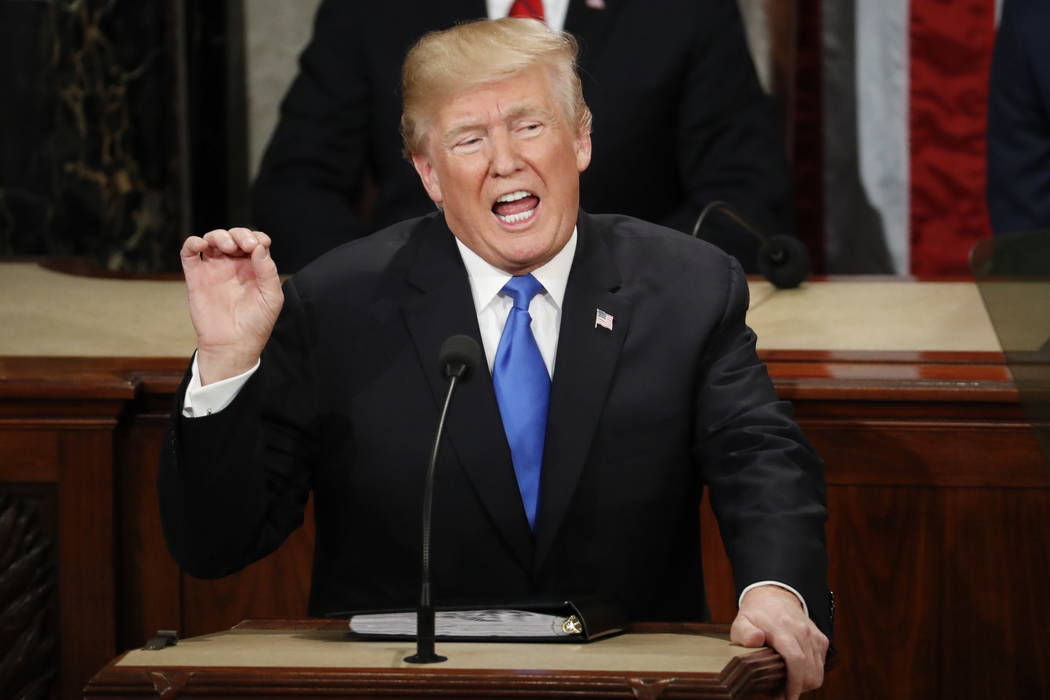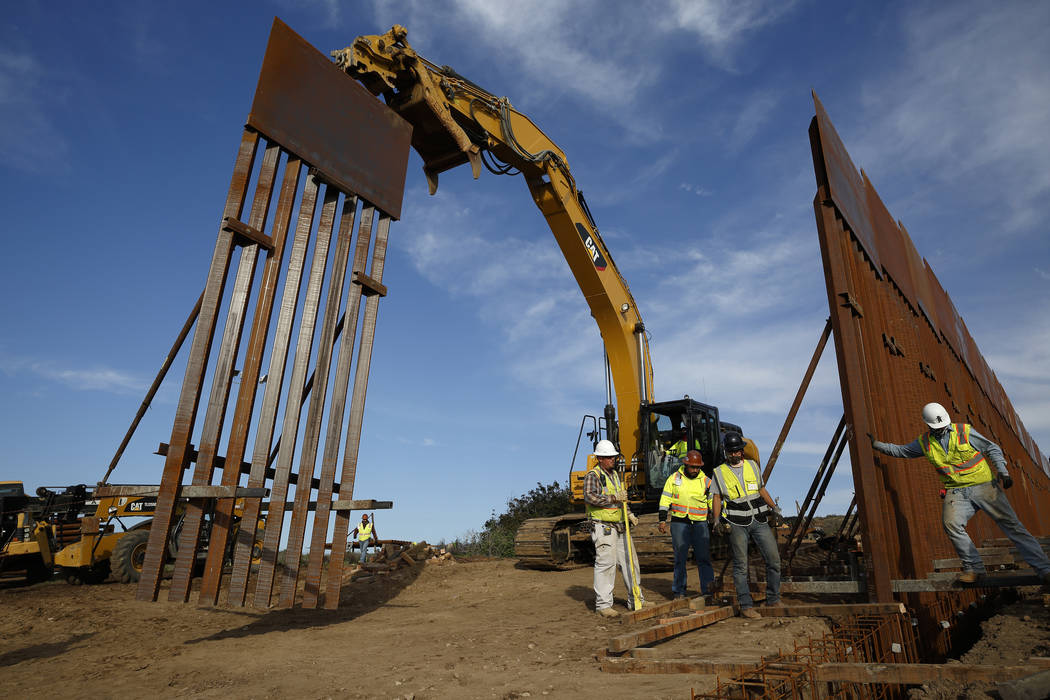Senate rebuke of border emergency would be embarrassment for Trump
WASHINGTON — Despite unease in the Republican ranks, the Senate will vote this week on a resolution that would terminate a national emergency declaration by President Donald Trump that allows him to redirect military construction funds to build a border wall.
Enough Republican defectors have said they will join Democrats to pass the resolution, which emerged from the House with bipartisan support. That will send the measure to the president, who has indicated he will veto it.
“I think what is clear in the Senate is there will be enough votes to pass the resolution of disapproval, which will then be vetoed by the president and then in all likelihood the veto will be upheld in the House,” Senate Majority Leader Mitch McConnell, R-Ky., told reporters at his weekly news conference.
If that happens, the focus will shift to federal court, where opponents are challenging the emergency declaration by arguing that it the exceeds the president’s constitutional powers.
A Senate rebuke of the president on the emergency declaration would be an embarrassment for Trump, who enjoyed strong GOP loyalty during his first two years in office.
The White House has lobbied hard to minimize Senate defections, warning that Republicans who abandon the president on border security may face consequences from the conservative base voters who turn out heavily in primary elections.
But GOP lawmakers facing re-election in 2020 also must worry about general election voters, who disapprove of the president’s plan to build a border wall, according to several recent national opinion polls.
Apart from the political calculations, some Republicans and many Democrats have expressed concerns that allowing the president to bypass Congress and use a declared emergency to reroute other obligated funds would set a dangerous precedent.
They say that Trump’s attempt to grab funds from military construction projects — highly prized plums that bring federal spending and create local jobs in home states — is unconstitutional and usurps the authority of Congress to control the “power of the purse.”
Senate Democrats are united in their opposition to the emergency declaration and in support of the House-passed resolution to terminate the president’s action.
“This president does not have the authority to appropriate these funds without Congress’ oversight and support,” Sen. Catherine Cortez Masto, D-Nev.,told the Review-Journal.
Some GOP senators asked Trump to withdraw the declaration and seek alternative ways to tap unspent Pentagon funds to build the wall.
But the president late last week indicated he was eager for a Senate to vote so he could veto the resolution when it hits his desk and force the House to try to muster the two-thirds majority needed to override.
“I think we’re doing fine in Congress. They understand it’s an emergency,” Trump told reporters at the White House before boarding Marine One to travel to Alabama to view tornado damage.
Four Republican senators — Susan Collins of Maine, Thom Tillis of North Carolina, Lisa Murkowski of Alaska and Rand Paul of Kentucky — have said they will vote with Democrats.
With a united Democratic caucus, that would produce 51 votes and the simple majority required to pass the resolution.
But more GOP defections could follow, including among conservative senators like Mike Lee of Utah and Ted Cruz of Texas, who are concerned about the constitutionality of the president’s action and setting a precedent that could allow a future president to declare a crisis to bypass Congress on gun control or pet spending projects.
For Republicans facing re-election in swing states, such as Colorado Sen. Cory Gardner and Arizona Sen. Martha McSally, having to vote on the resolution could lead to a primary opponent or become a political liability in a general election race. Paul predicted as many as 10 Republican senators would vote in favor of the resolution.
Several GOP lawmakers, including Sen. Lamar Alexander, R-Tenn., urged Trump this week to cancel the declaration and try to find unspent money elsewhere, but those calls went unheeded.
The current standoff was precipitated by a spending bill passed last month to avoid another partial government shutdown. It included $1.375 billion forfencing, technology, personnel and other border security measures.
But the Republicans and Democrats on the House-Senate conference committee that crafted the bill did not include Trump’s request for $5.7 billion for wall construction.
Trump signed the spending bill but immediately made his disaster declaration, insisting a border wall was needed to address the humanitarian crisis, end human and narcotics trafficking and stop criminals and gang members from entering the country.
The House voted on Feb. 26 to terminate the declaration 245-182, with 13 Republicans joining Democrats. The Nevada delegation split along party lines.
The Senate has yet to schedule a day for the vote, but McConnell suggested it would be this week. In the meantime, GOP leaders are awaiting a determination by the Senate parliamentarian on whether the resolution can be amended.
Both Cortez Masto and Rosen plan to support the resolution.
Contact Gary Martin at gmartin@reviewjournal.com or 202-662-7390. Follow @garymartindc on Twitter.
Nevada projects at risk
Nevada military installations could see a loss of $97 million in construction projects under President Donald Trump's declaration of a national emergency at the border if he follows through on his plan to use $3.6 billion in Pentagon accounts to help pay for a border wall. They are:
— Creech Air Force Base: $28 million for an MQ-9 unmanned aerial vehicle operations facility and $31 million for an MQ-9 operations command center.
— Nellis Air Force Base: $5.9 million for a combat rescue helicopter simulator.
— North Las Vegas: $32 million for a National Guard readiness center.
In addition, the administration has identified unspent funds it can redirect under the emergency declaration: $1.375 billion for border security in the spending bill and $3.1 billion from military drug interdiction programs and the Treasury Department's asset forfeiture accounts.
Source: House Appropriations Committee

























